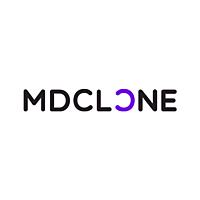Description

CA Test Data Manager

Synthesis AI
Comprehensive Overview: CA Test Data Manager vs Synthesis AI
CA Test Data Manager (TDM)
a) Primary Functions and Target Markets
Primary Functions:
- Data Provisioning: CA TDM provides a platform for the automated provisioning of test data. This includes data masking, data generation, and the management of test data for development, testing, and quality assurance purposes.
- Data Masking: Ensures that sensitive data is obfuscated or anonymized to comply with data privacy regulations while still remaining usable for testing.
- Data Generation and Mining: It can synthesize test data from scratch to ensure comprehensive test coverage and mine existing datasets to enhance and manage test data.
- Versioning and Data Reservation: Allows teams to manage different versions of test data and reserve specific datasets for various phases of testing.
Target Markets:
- Enterprise IT Departments: Large organizations with complex IT environments that require robust test data management solutions.
- Financial Services: Organizations needing to comply with stringent data privacy regulations.
- Healthcare: Providers needing to protect patient data while developing and testing applications.
- Telecommunications and Retail: Industries with large customer bases and data volumes that need streamlined testing processes.
b) Market Share and User Base
CA Test Data Manager is a part of the suite of solutions offered by Broadcom (formerly CA Technologies) and has been popular among large enterprises due to its comprehensive features and strong integration with other enterprise software solutions. Its user base primarily consists of enterprise IT departments across various sectors like finance, healthcare, and telecom, where data privacy and regulatory compliance are critical.
Synthesis AI
a) Primary Functions and Target Markets
Primary Functions:
- Synthetic Data Generation: Synthesis AI specializes in generating synthetic data for training AI models, often used in computer vision applications.
- 3D Model Creation: Uses advanced technologies to create accurate, diverse, and scalable datasets that help improve machine learning model accuracy.
- Privacy and Bias Mitigation: By generating synthetic data, it mitigates privacy concerns and reduces bias inherent in real-world datasets.
- Augmentation Tools: Provides tools to augment existing datasets to expand their applicability and improve model robustness.
Target Markets:
- AI and Machine Learning Developers: Individuals and organizations needing high-quality data for training AI models.
- Autonomous Vehicles: Companies developing machine vision systems for self-driving cars.
- Consumer Electronics and Robotics: Firms that require extensive image datasets to enhance product capabilities.
- Healthcare and Biotech: Organizations using machine learning models for diagnostics and predictive analytics.
b) Market Share and User Base
Synthesis AI is a newer entrant compared to CA Test Data Manager but has carved out a niche within organizations focusing on artificial intelligence and machine learning. It is particularly popular among startups and technology companies that need large-scale, high-quality datasets to train AI models without the risk of using sensitive or biased data.
c) Key Differentiating Factors
CA Test Data Manager
- Enterprise Integration: Offers strong integration with enterprise systems and workflows, catering specifically to businesses with complex environments.
- Regulatory Compliance Focus: Prioritizes data privacy and compliance with robust masking and protection features.
- Comprehensive Test Data Management: Provides end-to-end solutions for managing and synthesizing test data across various environments.
Synthesis AI
- Synthetic Data Expertise: Focused on the generation of synthetic data specifically for AI applications, addressing the challenges of traditional data sourcing.
- AI Model Training Specialization: Designed to improve AI and machine learning model accuracy through diverse and scalable synthetic datasets.
- Adaptability and Innovation in AI Fields: Quickly adaptable to the latest trends in artificial intelligence and machine vision, allowing faster deployment in tech-driven markets.
In summary, while CA Test Data Manager's strength lies in comprehensive test data management for enterprise-level compliance and operational integration, Synthesis AI focuses on providing innovative data solutions in the AI space. Their market shares and user bases reflect these focal points, with CA TDM being prominent in traditional enterprise sectors and Synthesis AI gaining traction in technology and AI-driven industries.
Contact Info

Year founded :
Not Available
Not Available
Not Available
Not Available
Not Available

Year founded :
2019
+1 858-335-1443
Not Available
United States
http://www.linkedin.com/company/synthesis-ai
Feature Similarity Breakdown: CA Test Data Manager, Synthesis AI
Comparing CA Test Data Manager and Synthesis AI involves understanding their functionalities in the realms of test data management and synthetic data generation, respectively. While they may have some overlapping capabilities, they are fundamentally designed for different purposes.
a) Core Features in Common
-
Data Generation:
- Both tools are involved in generating data. CA Test Data Manager generates test data for software testing purposes, while Synthesis AI creates synthetic data, often for machine learning models.
-
Data Privacy:
- Both emphasize maintaining data privacy. CA Test Data Manager often involves data masking and obfuscation, whereas Synthesis AI generates synthetic data that doesn't link back to real-world identities but still preserves the statistical properties of the original data.
-
Scalability:
- Both products are designed to handle large-scale data generation, useful in enterprise settings where significant amounts of data are required for testing or model training.
-
Integration Capabilities:
- These tools typically offer integration with other systems and databases to facilitate smooth data flow within the organization’s infrastructure.
b) User Interface Comparison
-
CA Test Data Manager:
- The UI is generally designed with a focus on data professionals dealing with testing processes. It might offer features such as data modeling, subset creation, and UI tools geared towards rapid test data creation and management.
-
Synthesis AI:
- The UI could be oriented towards data scientists and machine learning engineers. It likely focuses on ease of use for generating synthetic datasets, visualizing data distributions, and integrating with ML pipelines.
Common UI characteristics may include dashboards for monitoring data generation processes, intuitive navigation, and robust documentation and support materials. However, the specific design aesthetic and usability will depend on the company's design policies and the target user personas.
c) Unique Features
-
CA Test Data Manager:
- Data Subsetting and Masking: This tool is typically tailored for creating complex test scenarios by allowing fine-grained control over data subsets and advanced masking techniques.
- Data Reservation and Allocation: The ability to reserve specific data sets for particular test cases or users might set it apart.
-
Synthesis AI:
- Synthetic Data for 3D and Behavioral Models: Synthesis AI is particularly notable for generating synthetic data that can be used in diverse applications such as training computer vision models, which simulates various environments and conditions.
- Realism Preserving Techniques: The generation of synthetic data that maintains realistic lighting, textures, and behaviors for AI model training is a distinctive capability.
While there is an overlap in data generation and privacy aspects, each tool specializes in different applications: CA Test Data Manager in traditional test data management, and Synthesis AI in creating sophisticated synthetic datasets for AI development and research.
Features

Not Available

Not Available
Best Fit Use Cases: CA Test Data Manager, Synthesis AI
CA Test Data Manager and Synthesis AI serve different purposes and cater to varied industry needs, making them suitable for distinct use cases. Here's a breakdown of where each of them excels:
CA Test Data Manager (TDM)
a) Best Fit Use Cases:
-
Enterprise-Level Projects:
- Large enterprises with complex IT systems that require rigorous testing environments are ideal candidates for CA Test Data Manager. It excels in creating reliable and reusable test data, which is crucial for testing applications thoroughly in large-scale systems.
-
Industry Regulations:
- Industries like finance, healthcare, and insurance, where data privacy and compliance (e.g., GDPR, HIPAA) are critical, can benefit from CA TDM. It offers data masking and synthetic test data generation, ensuring sensitive customer information is protected while remaining useful for testing purposes.
-
Development and QA Teams:
- Businesses with dedicated development and QA teams can leverage CA TDM to streamline their test data provision processes, leading to faster development cycles and improved software quality.
-
Complex Data Environments:
- Organizations dealing with complex data models or multiple interconnected systems will find this tool helpful in maintaining data consistency and integrity across environments.
Synthesis AI
b) Preferred Use Cases:
-
AI and Machine Learning Projects:
- Synthesis AI is optimal for businesses working on artificial intelligence and machine learning projects that require large datasets for training models. It can generate high-quality synthetic data that mimic real-world conditions without privacy concerns.
-
Computer Vision Applications:
- Companies focused on developing computer vision applications, such as in autonomous vehicles or facial recognition, stand to benefit from Synthesis AI's capability to create diverse and tailored image datasets.
-
Startups and Innovation-Led Projects:
- Startups or tech companies innovating in new areas where obtaining real-world data is challenging, costly, or ethically complex would find Synthesis AI advantageous for its ability to quickly produce needed data.
-
Testing in Simulated Environments:
- Projects that involve virtual testing and simulation environments, such as video game development or virtual/augmented reality, are well served by Synthesis AI's simulated data outputs.
Industry Verticals and Company Sizes
CA Test Data Manager:
- Verticals: Financial Services, Healthcare, Insurance, Retail, Telecommunications.
- Company Sizes: Predominantly used by medium to large enterprises due to the complexity and scale of their software systems and regulatory requirements.
Synthesis AI:
- Verticals: Technology, Automotive (especially autonomous driving), Entertainment (gaming and simulation), Biometric Security.
- Company Sizes: While beneficial to both startups and established tech companies, it is particularly attractive to smaller, agile companies and R&D departments looking to push the boundaries of AI.
In conclusion, CA Test Data Manager and Synthesis AI serve different niches. CA TDM is centered around generating and managing test data for application testing within controlled environments, making it suitable for industries bound by stringent data regulations and robust testing needs. Meanwhile, Synthesis AI focuses on generating synthetic data primarily for AI model training, particularly in areas where real-world data collection is impractical or insufficient.
Pricing

Pricing Not Available

Pricing Not Available
Metrics History
Metrics History
Comparing teamSize across companies
Conclusion & Final Verdict: CA Test Data Manager vs Synthesis AI
Conclusion and Final Verdict: CA Test Data Manager vs. Synthesis AI
When choosing between CA Test Data Manager and Synthesis AI, the decision hinges on the specific needs of your organization, particularly in terms of data management and AI synthesis requirements. Here's a breakdown to help you decide which product offers the best overall value for your use case:
a) Best Overall Value
-
CA Test Data Manager tends to offer the best overall value for organizations focused on comprehensive test data management, particularly in sectors where data masking, data generation, and managing vast amounts of test data is critical. Its features are well-suited for environments with strict compliance and data privacy requirements.
-
Synthesis AI, on the other hand, offers significant value for companies and projects where creating synthetic data is crucial, particularly in AI model training and development. Its ability to generate realistic but artificial data can be invaluable for reducing bias and increasing the diversity of training datasets.
b) Pros and Cons
CA Test Data Manager
-
Pros:
- Comprehensive suite for managing test data across various environments.
- Strong focus on data privacy and compliance, ensuring sensitive information is protected.
- Supports data generation, masking, and subsetting, making it versatile for various data scenarios.
-
Cons:
- May have a steeper learning curve for users new to test data management.
- Potentially higher costs, especially in cases where full functionality is not utilized.
- Primarily focused on test data environments, with less emphasis on synthetic data creation for AI.
Synthesis AI
-
Pros:
- Exceptional for generating synthetic datasets, which can enhance AI model training.
- Reduces bias by allowing diverse data generation, improving model generalization.
- Accelerates data preparation and experimentation cycles for AI development.
-
Cons:
- May not be suitable for general test data management or environments needing comprehensive data privacy tools.
- Dependency on synthetic data might lead to potential challenges in real-world data accuracy.
- Focused primarily on AI use cases, which might not cater to needs outside of synthetic data generation.
c) Recommendations for Users
-
For Companies Needing Comprehensive Test Data Management: If your organization primarily needs advanced test data management solutions with a focus on compliance and privacy, CA Test Data Manager is recommended. It is ideal for sectors like finance, healthcare, or any industry with rigorous data protection standards.
-
For AI-Driven Organizations Needing Synthetic Data: If the goal is to enhance AI training with diverse datasets while managing bias and ensuring varied data representation, Synthesis AI should be prioritized. It’s especially beneficial for tech companies, startups, or research institutions with AI as a core component of their operations.
-
For Hybrid Needs: In circumstances where both test data management and synthetic data generation are critical, consider an integrated approach, possibly leveraging both tools while being aware of their unique strengths. This may involve using CA Test Data Manager for data management and compliance tasks, while Synthesis AI could be used relegated to AI training datasets.
Ultimately, your choice should align with your strategic priorities, technological landscape, and expected outcomes. Consider consultative support from either provider to ensure alignment with your specific use case.
Add to compare
Add similar companies



